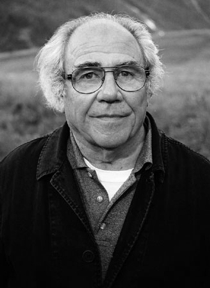|
 Genre Implosion’s interest in the ideas of French philosopher and cultural critic Jean Baudrillard centres on the notion of Musical Genre’s function as a simulacrum, or sign, for actual music which poses as truth (via categorisation, inculturation and market manipulation), but which bears no real relationship with that to which it presumes to refer. Any references to a ‘personification’ of genre must be read not as inherently ascribing will or agenda to an inert semantic construction, but to those agents most active in the proliferation and development of music, the industry and the society which consumes its products (note the conspicuous absence of the individuals, groups and cultures which actuallly create music!) Genre Implosion’s interest in the ideas of French philosopher and cultural critic Jean Baudrillard centres on the notion of Musical Genre’s function as a simulacrum, or sign, for actual music which poses as truth (via categorisation, inculturation and market manipulation), but which bears no real relationship with that to which it presumes to refer. Any references to a ‘personification’ of genre must be read not as inherently ascribing will or agenda to an inert semantic construction, but to those agents most active in the proliferation and development of music, the industry and the society which consumes its products (note the conspicuous absence of the individuals, groups and cultures which actuallly create music!)
Jean Baudrillard was born in Reims, France in 1929, the grandson of peasants and son of civil servants. According to interviews his role as the first in his family to pursue an advanced education led to a rupture with his parents and his inherited cultural identity. He studied languages, philosophy, sociology and other disciplines, and after early work as a critic and translator of German literature in the early 1960s, became a vocal opponent of American and French involvement in the Vietnam and Algerian wars allied with the French Left. Under the influence of Lefebvre, Barthes and others, Baudrillard lived an intensely intellectual and revolutionary life, beginning as a professor at the new Nanterre University in 1966, and though he was later to break with this stream he contributed to the Paris uprising of May 1968 and remained intellectually close to the French situationists in their profound distrust of ‘culture’, and in a tirade against the ‘art of the spectacle’ that would only grow in the two decades that followed. Baudrillard left Nanterre in 1987, and has remained active in both publishing and teaching. He currently serves on the faculty of the European Graduate School of Media and Communications Studies, an innovative university program based in Saas-Fee, Switzerland, but also functioning in New York, Dresden, Paris, Los Angeles and online.
Critiquing in the 1960s both classical Marxism for its focus on objects and emerging Capitalism for its preoccupation with signs his early works already addressed semiology as a vital component of politics and society. In the 1970s he proposed production and simulation as the organizing principles of modern and postmodern societies respectively, offered “symbolic exchange” as an alternative, and pursued a significant project to recast classical, production-oriented Marxism into a more effective form recognizing the symbolic forms of exchange he said had both preceded and followed modern, production-based societies. But it was not to be until the 1980s that he trained his eye (and his already well-discharged weaponry) on the culture of the media, and on a postmodern society which had as radically broken with modern times as had modern times with premodern times; a “hyperreal” society organized on the logic of simulation, and facing the immanent implosion of meaning, culture, and the social.
Read Chapter 4, “Genre as Simulacrum” from Imploding Musical Genre in PDF format here.
|